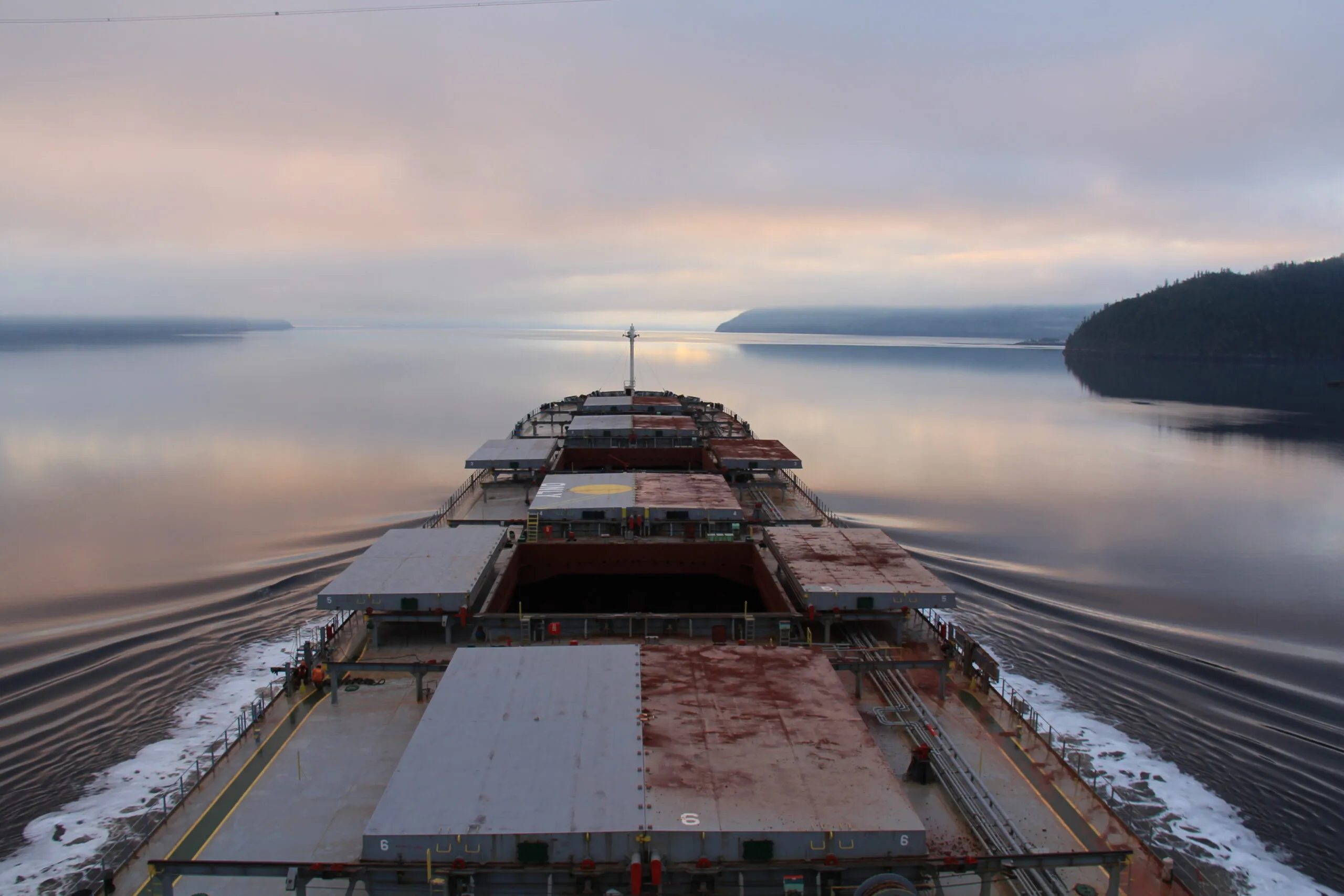It’s taken me a while to write this column, but the subject has been on my mind for some time. I needed time to reflect on the deep connection between our Port and the soul of our city. For centuries, the St. Lawrence River has been more than just a place for ships to dock; it’s been the beating heart of our economy, the living breath of our history, and the channel through which generations have seen the future arrive – on ships filled with hope, raw materials, and promise. It’s been our gateway to the world, our vital artery, and, at times, our ligne of resistance.
Today, as global currents become more unpredictable and economic winds change direction without warning, the Port of Québec’s role as a key driver of our prosperity has never been more evident – or more valuable.
Winds From The South: Navigating Troubled Waters
Lately, we’ve been hearing a lot about “tariff wars”, a term that may seem far-fetched … until we experience it every day.
To put it simply, tariffs are taxes that governments impose on goods that cross their borders. In practice, it can mean that the fruit, clothes, and appliances we buy become more expensive. For our companies, the result is direct pressure: it costs more to import the parts of materials they need for production, and they risk losing their market share if their products become too expensive to remain competitive.
In this atmosphere of uncertainty, the need for stability, autonomy, and resilience becomes paramount. This is where the strength of our river and our port truly comes into play.
The River: Our Strength
In this turbulent world, there’s a lot of talk about logistical autonomy. It might seem like an empty buzzword, but here in Québec, it holds great significance.
Logistical autonomy is our ability to rely on ourselves to bring in the essentials: energy, raw materials, and the natural resources that fuel our local economy. And we owe it, in large part, to our mighty river and the infrastructure that channels its power: the Port of Québec.
The St. Lawrence is also more than just an iconic feature of our landscape: it’s a lifeline. It’s the conduit for everything we need to live, produce, and build.
The Port is our collective asset, our connection to the world. Indispensable yet often overlooked, it ensures the flow of raw materials that fuel our industries, our projects, and our development. Even when the world is in turmoil, it keeps us on an even keel.
Moreover, it equips our companies to build prosperity that is rooted right here at home. It supports jobs, supplies our factories, and sustains a processing chain that often begins right at the wharf. It’s not just about transportation; it’s a question of autonomy, resilience, and forward-looking vision.
The Port: Our Guiding Light
The Port’s strategic importance becomes most apparent in times of instability. It acts as a shock absorber in circumstances such as tariff wars and trade tensions. By diversifing our shipping routes and markets, it reduces our dependance on a single partner and offers our companies practical alternatives.
It makes it easier to import essential goods from differents parts of the world, which can help limit price hikes. What’s more, it opens up new prospects for our exporters, boosting their ability and competitiveness.
The Port of Québec is more than just infrastructure. It’s a driving force, a dynamic hub that gives our city the ability to adapt, diversify, and remain unshakeable in headwinds. It reflects our long-term vision and our collective determination to invest in solid foundations for the future.
The Port is not static. It shifts, evolves, and adapts to the times, our needs, and our hopes. It’s a place of passage, but it’s also an anchor point.
It embodies our ability to stand tall and see the open water on the horizon, while protecting what we hold dear here at home.
A Parting Thought
I’ll leave you with these words, which I hope will resonate with you as much as they do with me :
“A port is not just a gateway; it’s an anchor. An anchor that steadies a city in a storm and allows it to look to new horizons.”
– Olga Farman
